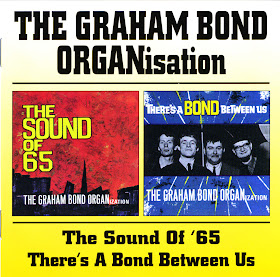Chris Farlowe was born John Henry Deighton in Islington, North London on October 13 1940, amidst the rationing, gas masks and bombing raids of WWII. Chris’ earliest musical influences were inherited from his close-knit family. His Mum, a self taught piano player, played at family sing alongs and at the local pub, where Chris sang in public for the first time. Chris and his Mum loved Doris Day along with other outstanding female vocalists from this era, including Jeri Southern, Sarah Vaughan and Anita O’Day, and Chris admits, he learnt a lot about song delivery from listening to these timeless chanteuses.
In common with many of the great British stars who emerged from the sixties, one of Chris's earliest heroes was the late Lonnie Donegan, and whilst still a teenager, Chris formed his own Donegan/Vipers influenced skiffle band - the modestly named 'John Henry Skiffle Group!’ They entered and won local talent contests and played small local venues for pocket money.
In 1965, things didn’t look like they were going to improve; the single ‘Buzz With The Fuzz’ was doomed to failure when EMI withdrew it soon after release, after realising the song contained references to illicit drug taking. It did however become a mod classic and won over many parka wearing fans, who to this day still regard Chris as a mod hero. Things picked up later in the year in an unexpected way when an unsuspecting Chris and The Thunderbirds recorded 'Stormy Monday Blues', a relatively unknown blues number by T Bone Walker.
Recorded as a studio try out, they were surprised at the critical acclaim it received and even more surprised when they found out that Sue Records had released it under the pseudonym 'Little Joe Cook'. Now, widely acknowledged as one of the main contenders for the accolade, best British blues record in history, people took some convincing at the time that the authentic sounding vocals were produced by Chris from North London, and not some obscure black bluesman from the deep south!
The summer of 66 saw England winning the Football World Cup, the USA fighting in Vietnam and the release of 'Out of Time', the third single on the Immediate label. Against Chris's wishes, EMI followed up ‘Out of Time’ with the release of 'Just a Dream' and then the much better 'Ride on Baby' both of which received a luke warm reception in terms of chart success - 'OOT' was such a tough act to follow.
The latter part of the sixties saw a number of releases, none of which had any major chart success with the exception of the classic 'Handbags and Gladrags' a song penned especially for Chris by buddy Mike d'Arbo of Manfred Mann fame and covered by Welsh rockers, the Stereophonics in 2003. Incredibly, this was to be Chris's last chart success, not counting the re-release of 'OOT' in the mid seventies. By the end of the sixties, Chris didn't have a record deal and looked set to fade into obscurity.
The Hill were a hard rock combo formed by ex Thunderbirds bass player Bruce Waddell, drummer Colin Davey, and keyboard player Peter Robinson, together with ex Fat Mattress guitar player Steve Hammond, and cellist Paul Buckmaster (yes it does say cellist!). Just one album with The Hill, but it’s a classic and quite possibly the first heavy rock album to feature a cellist. ‘From Here to Mama Rosa’, a much heavier, rock sound than anything Chris had done to date, was hinting at what might be if Chris chose to move in that direction. And fortunately for rock fans, he did.
Chris Farlow official-pageTracks
1. Traveling Into Make Believe 04:35
2. Fifty Years 02:43
3. Where Do We Go From Here 04:29
4. Questions 03:44
5. Head In the Clouds 06:59
6. Are You Sleeping 05:37
7. Black Sheep 04:49
8. Winter In My Life 04:01
9. Mama Rosa 07:45
10.Put Out The Lights (A-Side 1970) 02:44
11.Sylvie (US-Only A-Side 1969) 03:22
12.The Fourth Annual Convention Of The Battery Hen Farmers' Association Part II (US-Only B-Side 1969) 04:36
13.Dawn (A-Side 1968) 03:49
14.April Was The Month (B-Side 1968) 03:51
Tracks 1-9, 11-12 perfomed by The Hill
Track 10 by C. Farlow with The Hill
Tracks 13-14 by C. Farlow and The Thunderbirds
Musicians
*Chris Farlowe – Vocals
*Peter Robinson - Keyboards
*Steve Hammond – Guitars
*Bruce Vaddell – Bass
*Colin Davy – Drums
*Paul Buckmaster - Cello
Free Text
Text Host





























